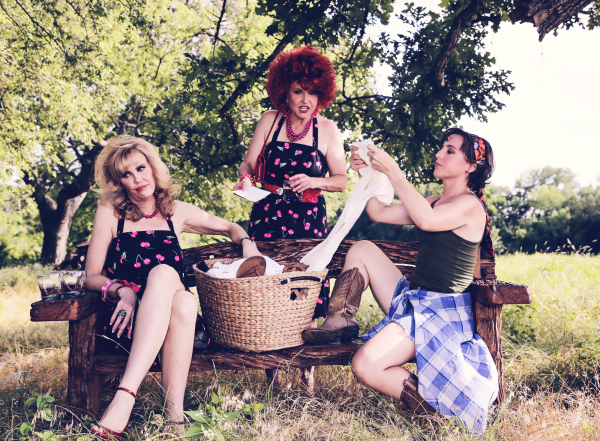Small-Town Texas Hits the Big City With Laundry and a Six-Pack in Tow
For New York City theatergoers, the most significant experience with Texas theater is likely to have been the rousing dance number "Big D" from The Most Happy Fella. This summer, the Contemporary Theatre of Dallas plans to show Manhattanites what real Big D theater is all about, as the company makes its New York debut off-Broadway at the Clurman Theatre with James McClure's two one-act plays Lone Star and Laundry and Bourbon.
McLure, who passed away in 2011 at the early age of 59, penned the companion pieces in the late 1970s, which have since been performed in theaters ranging from New Jersey's McCarter Theatre to the Actors Theatre of Louisville. The plays are set in the small town of Maynard, Texas as the smoke clears from the Vietnam War. Lone Star follows a veteran named Roy and his beer-guzzling pals outside a local bar, while Laundry and Bourbon captures a scene with his troubled wife as she entertains a pair of community gossips, who share their uniquely Texas charm over a few cocktails.
TheaterMania spoke with director (and Texas native) Cynthia Hestand about the production's New York arrival, where she offered insight into the southern mentality behind the two pieces. An important lesson for New Yorkers to keep in mind as they form their opinions about the foreign Lone Star State: Don't believe everything you see on TV.

(© Luke Robert Miller Photography)
These plays have been performed all over the country, and were recently mounted at the Contemporary Theatre of Dallas in 2006. Why do you think they've become so popular?
I think Texas is an interesting place. People are curious about the Texas mystique. I remember when the Dallas TV series first came out — the first time around. When you would travel places, everybody knew Dallas and the people here would kind of roll their eyes. [You'd think] Yes, but we're not all like J.R. We don't all live out on a big farm. Here in Texas, Texans like to see it because it's a native play.
The characters in these plays will probably seem foreign to native New Yorkers. As a Texan, are they familiar to you?
Oh yeah, absolutely. The kind of country that they talk about in the show is definitely something I'm familiar with. The desert, and the coyotes, the desolation. But actually there's a kind of wild beauty to West Texas. But yes, I definitely grew up with people like this. You encounter a lot of these types of people in the really small towns.
Is gossip as big a part of the culture as it's made out to be in the plays?
Oh, definitely. [It's like] Steel Magnolias. The really small town…When you're from a small town, gossip and knowing everybody's business is a big part of that. I remember during the 1960s my mother went to Edna Earl's Beauty Shop. She turned her garage into a beauty shop and everybody who was anybody went [there] and that's where you found everything out.
Alcohol, too, it seems. The bar plays a particularly important role in Lone Star.
Back in the 1970s, [bars] were basically truck stops — and not like the really nice family truck stops that you see now. These were back before the days of background checks and before they had the police stopping you for alcohol. [James McLure] said that the bar would have been a place inhabited by truckers coming through — probably murderers. You could be anybody and drive a truck back then. You didn't know who the hell was walking in the door. So [Lone Star is set] on the outskirts of town. [The character] Cletis, being a Baptist, would need to go to a bar on the outskirts of town where no one would see him — because it's really not okay to drink when you're a Baptist. [laughs]
The plays are set around the time of the Vietnam War and center around many of those themes. Do those still resonate today?
[James McLure] really wrote it because of the Vietnam War. He was from that generation and he knew a lot of people who went over there and he experienced the turmoil of that…[But] it's interesting because we have somebody in the play who has family that's been to Afghanistan and who's had a lot of war veterans in his family. He says, in a way, this is kind of what they're going through now, so I don't know that it has changed that much. To him, there are still a lot of the same concerns. One reason people like [the plays] is because they do still feel connected to them. There's a section in there where they talk about bad marriages. Things like that make it universal. That'll always be around.











